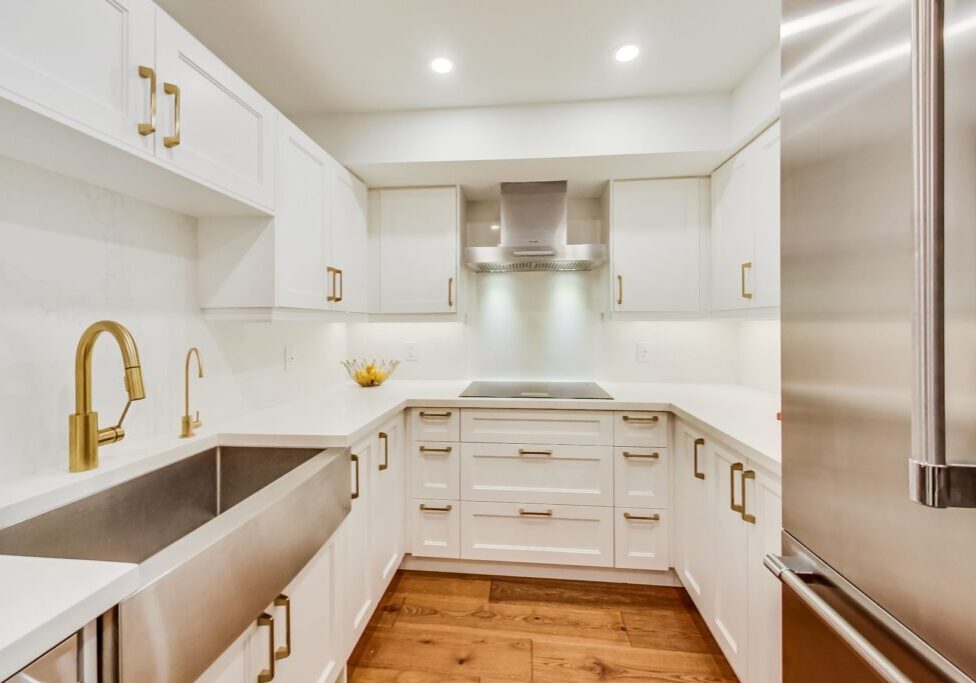
As concerns about climate change and environmental conservation continue to grow, many homeowners are seeking ways to incorporate eco-conscious principles into their living spaces. Embracing sustainability in residential renovation projects not only helps protect the environment but also can improve your home’s energy efficiency and indoor health while reducing your carbon footprint. At our full-service residential construction and project management company, we understand the importance of creating sustainable living environments, and our team can expertly guide you through the process of incorporating environmentally friendly practices into your renovation projects.
In this article, we will discuss various strategies for embracing sustainability in residential renovations, focusing on Custom Homes and Infill Projects, Home Additions, Interior Renovations, Condo Renovations, Architectural Services, Basement Renovations, Kitchen Renovations, and Bathroom Renovations. We’ll explore energy-efficient systems, eco-friendly materials, and sustainable design practices that can be implemented in any renovation project, regardless of scale or budget.
Energy-Efficient Systems and Appliances
One of the most effective ways to reduce your home’s environmental footprint is by incorporating energy-efficient systems and appliances into your renovation. These energy-saving features not only help conserve vital resources but also reduce your utility costs in the long run. Consider the following energy-efficient strategies for your renovation project:
1. Heating, Ventilation, and Air Conditioning (HVAC): Upgrading to an energy-efficient HVAC system can drastically improve your home’s energy consumption. Look for systems with ENERGY STAR ratings or heat pumps that provide both heating and cooling solutions.
2. Water Heating: Opt for energy-efficient water heating options such as solar water heaters, tankless water heaters, or heat pump water heaters to save energy and reduce your utility costs.
3. Insulation and Air Sealing: Proper insulation and air sealing are critical in maintaining a comfortable indoor temperature while reducing your home’s energy consumption. Ensure that your home is adequately insulated and sealed to minimize drafts and heat loss.
4. Energy-Efficient Appliances: Upgrading to ENERGY STAR-rated appliances during your renovation ensures that you are using the most energy-efficient options available, which can result in significant energy savings over time.
Eco-Friendly Building Materials
Using environmentally friendly materials in your renovation is another effective way to embrace sustainability while lowering your home’s environmental impact. Consider the following eco-conscious materials for your renovation project:
1. Reclaimed and Recycled Materials: Reclaimed wood, recycled metal, and recycled glass are all eco-friendly options that can be used in various applications throughout your home, such as flooring, countertops, or cabinetry.
2. Sustainable Flooring: Opt for sustainable flooring options such as bamboo, cork, or reclaimed wood, which are not only environmentally friendly but also provide a unique and attractive appearance.
3. Low VOC Paints and Finishes: Choose low-VOC (Volatile Organic Compounds) paints and finishes to minimize the release of harmful chemicals into your indoor environment, improving air quality and reducing health risks.
4. Locally Sourced Materials: Utilizing locally sourced materials reduces the energy required for transportation, helping to lower your project’s carbon footprint.
Green Design Principles and Practices
Implementing green design principles and practices in your renovation can result in a more efficient, sustainable, and healthier living environment. Keep the following green design strategies in mind when planning your project:
1. Open-Concept Layouts: An open-concept layout can promote natural airflow throughout your home, reducing the reliance on air conditioning and resulting in energy savings.
2. Natural Lighting: Prioritize natural lighting by incorporating larger windows, skylights, or light tubes, thus reducing the need for artificial lighting during daylight hours and lowering your energy consumption.
3. Passive Solar Design: Optimizing your home’s passive solar design involves strategically positioning windows, walls, and floors to store and elicit heat from the sun, reducing the need for energy-intensive heating systems.
4. Efficient Space Utilization: Streamlining your home’s layout and maximizing functional spaces can lead to improved energy efficiency by minimizing the need for additional cooling, heating, and lighting in unused areas.
Landscaping and Outdoor Spaces
Sustainable landscaping and outdoor renovations can contribute to your home’s overall eco-friendliness by promoting native vegetation, minimizing water waste, and providing natural shade and cooling. Consider these tips for an eco-conscious outdoor space:
1. Native Plants: Native plants are more likely to thrive in your local climate without requiring excessive water or pesticides, thus reducing your outdoor area’s environmental footprint.
2. Drought-Tolerant Landscaping: Opt for drought-tolerant plants and landscaping techniques such as xeriscaping to conserve water and create a low-maintenance, eco-friendly yard.
3. Rainwater Harvesting: Install rainwater harvesting systems such as rain barrels or cisterns to collect and store rainwater for your gardening and landscaping needs, reducing water consumption and lowering your utility costs.
4. Shade and Cooling: Incorporate outdoor elements such as pergolas, shade sails, or strategically planted trees to provide natural cooling and shade, reducing the need for energy-intensive air conditioning systems.
In Conclusion
Embracing sustainability in your residential renovation projects is not only beneficial to the environment but can also result in a healthier, more efficient, and cost-effective living space. By incorporating energy-efficient systems and appliances, utilizing eco-friendly building materials, applying green design principles, and adopting sustainable landscaping practices, you can create a beautiful home that supports your commitment to environmental conservation and green living.
Ready to transform your home with eco-conscious renovations in Toronto? Contact our team of experts today at Contempo Renovations Solutions, and let us help you embrace sustainability in your residential renovation project.
